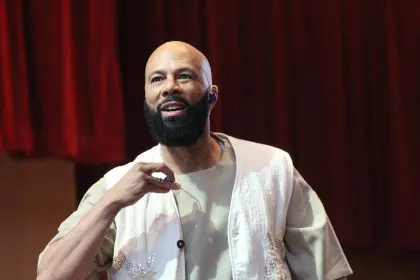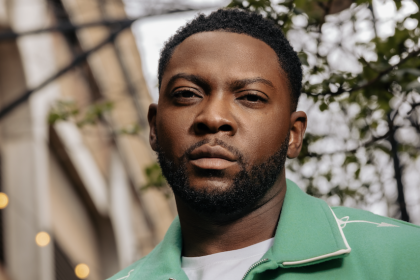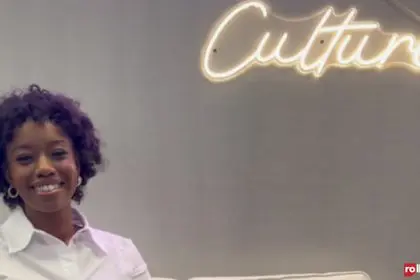
Since meeting via the message boards of Okayplayer.com and emailing music back and forth that would eventually turn out to be their first album (2004’s Connected), The Foreign Exchange has proven to be not only a consistent and reliable musical act, but also an innovative, independent label and brand.
With each subsequent release (2008’s Leave It All Behind, 2010’s Authenticity, 2013’s Love in Flying Colors), the group has gained momentum, even earning a Best Urban/Alternative Performance Grammy nomination in 2009 for the track “Daykeeper” (feat. Muhsinah) and continued amassing a loyal and faithful following.
Rolling out recently sat down with group leaders Phonte and Nicolay to discuss a number of things, including the start of their indie label, the onset of music streaming, and the importance of art in schools.
Check out part one of the interview.
For the most part, fans know of the way you guys connected via the message boards on OkayPlayer and Myspace, but, Nicolay, I recently read that you were on the verge of quitting music at the time you two met. Any truth to that?
Nicolay: I did actually quit. I had quit pursuing music as a living. What happened was I had been playing in various groups for years. I was always on the grind but ultimately it just never paid the bills for me. And so there was a moment in my life where I just had to kind of decide ‘Do I wanna just stay involved and pursue the dream or am I gonna go find a job and make some money to pay my bills?’ and I chose the latter. At that moment music for me became a hobby. It was strictly something that I did at night and after hours. And then Foreign Exchange happened…
Phonte, given your previous trials with a major label, when you began The Foreign Exchange with Nicolay, did you know for certain that you wanted to create your own independent label and model?
Phonte: Man, not at all! When Nic and I first starting making records there wasn’t even a plan in terms of a group or doing an album. We just weren’t thinking that far ahead. When we did Connected, we just really wanted to do records. So we were doing records and making stuff then BBE Records came along and showed interest and it just sorta took off from there. Then when we started working on Leave It All Behind, we took another meeting with BBE and played them what we had at that point and they made us an offer. But Nic and I did the math and were just like “You know what? We can just do the s— ourselves and make just as much if not more …,” so that’s just how it kinda happened. We just took each project on a case-by-case basis, then after the success of LIAB, and seeing what that accomplished, then we were like “Yeah, OK. We’re good!”
Speaking of Leave It All Behind, did the Grammy nomination of the single “Daykeeper” in any way solidify to you that you were on the right track as far as this collaboration goes?
Nicolay: I think so. I think if anything it confirmed that the turn we tried to make with Leave It All Behind was the right thing to do. I don’t think that we ever really doubted that but it was nice to see that there was some form of recognition and I think ultimately being Grammy nominated really was something that put everything in perspective for our family and loved ones and people that supported us up until that point. I think it helped to make clear to everyone that what we were doing was very real.
As indie artists, what’s your take on the on-set of music streaming and platforms like Pandora, Spotify, and Tidal? Is it a good thing because it helps introduce you to new listeners or is it bad because it discourages people from actually buying the music?
Phonte: I think it’s a good thing. I think the main thing in 2015, even moreso than five or six years ago, and I’ve been saying this for years, is as artists we’re not living in financial economy anymore. We’re in an attention economy. As an artist you’re not fighting for people’s dollars anymore. You’re fighting for their time and attention. So with outlets like Tidal and Spotify and the such, I can applaud them for being like the legal alternative. Streaming is pretty much been here for a while. I mean the number one streaming app is YouTube. People talk about Tidal and everything else but most people, if they’re looking for a song, they’ll just go to YouTube and pull it up there. So I think streaming is good because it gives people access and an option to check you out. With so much music out there and so many people competing for the attention of the listener, you can’t put up a wall anymore. You have to be accessible. People will give you their money. We’re a testament to that as we have been able to survive and even thrive a bit but you have to give them access first. So I think the streaming companies are all good services that provide people access to the music and if they really like it they’ll break bread with you somewhere else whether it be a T-shirt or a show or what have you. We’ve had several people hit us online like “Yo, I discovered you on Spotify and I’m coming to my first show!”
You guys will be in Chicago on July 9 to play a fundraiser for the Betty Shabazz International Charter Schools. As far as music and art being steadily cut from school funding how important is it that we find ways to keep music and art available for students?
Nicolay: It’s absolutely vital. Unfortunately, music and art are normally some of the first things to get cut when the going gets tough but it’s incredibly important for kids to have access to those programs. Whether it be music or painting or art, there’s gotta be a way for children to learn how to express themselves creatively.
Phonte: Nic definitely hit it on the head. I remember those classes being some of my favorite in school. I feel it’s important to nurture both sides of the brain. You gotta have your basic stuff like science and math, but I also believe classes like art and music can help to inform students and in many ways help improve students’ performance in those core subjects. So you can’t understate the importance of art and music in schools. In my case it helped gain a view of the world that has always stuck with me.
The Foreign Exchange will headline the first annual benefit concert for the Betty Shabazz International Charter Schools on Thursday, July 9 at The Promontory in Chicago’s Hyde Park neighborhood.
For more information on The Foreign Exchange, please visit www.theforeignexchangemusic.com.








